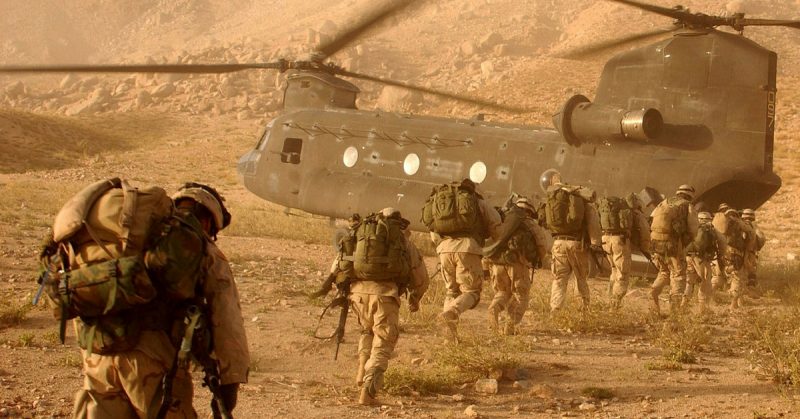The Victoria Cross (VC) is Britain’s highest military award for valor. During the War in Afghanistan, they were awarded posthumously until one man bucked the trend.
He is Joshua Mark Leakey, born in Hampshire, England in 1988. His father is Air Commodore Mark Leakey, his uncle is Major General Rea Leakey, and his cousin is Lieutenant General David Leakey.
There was also his ancestor, Nigel Leakey, who received a VC during WWII – again posthumously. Joshua studied for a degree in Military History at the University of Kent but dropped out to join the British Army in 2007. After basic training, he was assigned to the 1st Battalion, Parachute Regiment. He was then posted to Afghanistan.
That (ongoing) conflict is known by many names. The Americans call it Operation Enduring Freedom (OEF), NATO calls it the International Security Assistance Force (ISAF), while the British refer to it as Operation Herrick. As such, Leakey saw action in 2009 and 2011.
In December 2012, the then British Prime Minister David Cameron stated Britain would withdraw half its troops from Afghanistan’s Helmand Province. Despite protests from the US, he kept his word.
By 2013, about 5,200 British and Commonwealth troops remained in Afghanistan. Fortunately for one small group, including several Americans, 27-year-old Lieutenant Corporal Leakey was among them.
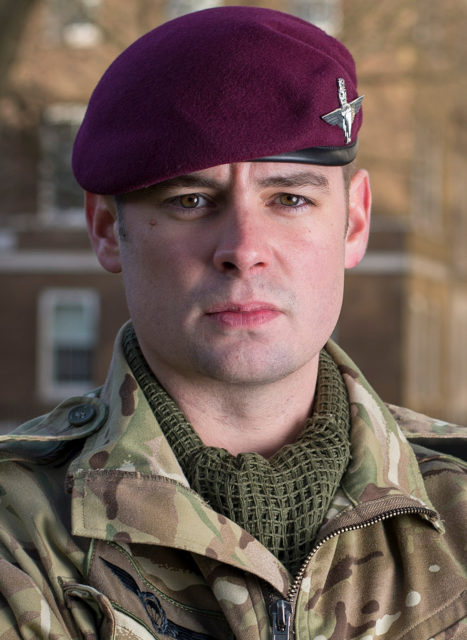
On August 22, two Chinook helicopters landed a joint force of British, American, and Afghan troops near a small village south of the town of Nawzad in Helmand Province. It was a routine patrol. Their mission was to search the village for illegal weapons. However, they did not have to as the weapons found them.
The chopper carrying the Americans landed first. Its cargo of Marines fanned out toward the village as Leakey’s Chinook landed on a nearby hill. His team’s job was to provide covering fire for the Americans from an elevated position. They did not have to wait long.
Their helicopter had just landed when the firing began. Enemy forces within the village fired at the Marines with machine guns and rocket-propelled grenades, pinning them down.
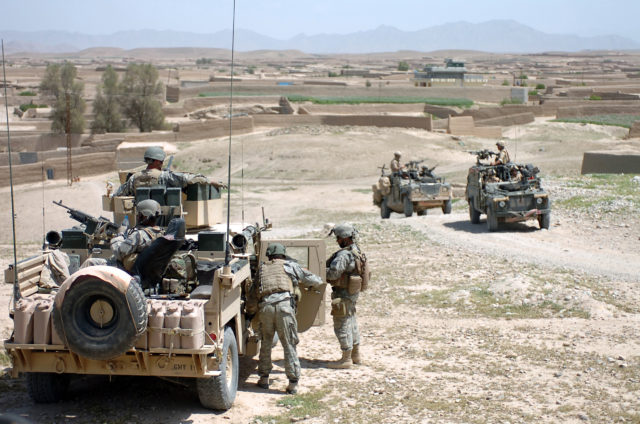
Leakey and three others, together with an Afghan soldier, surged down the hill, hit the ground, and fired back. Their radio operator advised one of the Americans had been shot but was still alive – then nothing. All chatter stopped. The Taliban had taken out the American communications equipment.
The gunfire continued. Needing to assess the situation, Leakey ran back up the hill for a better view – it was not good. The Taliban were surrounding two machine gun teams and one mortar section on an exposed slope.
Leakey needed to do something soon, or they were as good as dead. There was also the wounded American to consider.
As a Lance Corporal, Leakey was the lowest non-commissioned officer among his group, and time was running out. When he gave the order to run down the hill and join the Americans below, the other soldiers followed.
While his group fired back at the enemy, Leakey tended to the wounded American who was a US Marine Corps captain. While the soldiers provided covering fire, he half-dragged and half-carried the Marine back up the hill to a more protected spot and did the best he could with the injured soldier’s wound.
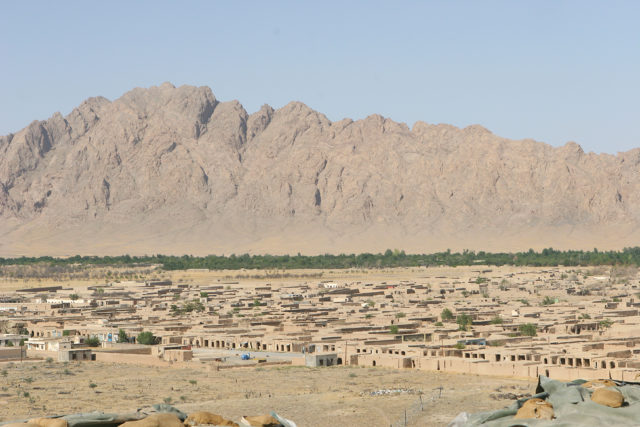
Now the Taliban knew where he was. Further up the hill was a mounted machine gun his team had left behind when they rushed down to help the beleaguered Americans. Leakey could see it, but there was constant gunfire ricocheting all around him.
Taking a deep breath, he scrambled up – a very visible target on the barren, desert-like slope of the hill. It did not help that he was weighed down by more than 60 pounds of heavy equipment. He made it.
Leakey later told a British newspaper that he had been “reasonably aware” of the bullets whizzing past him, but that he had been too focused on doing his job.
While constantly under heavy gunfire he moved the machine gun to a better position and fired back downhill. The twenty or so enemy forces approaching the two groups below retreated from the onslaught – giving the surrounded Americans, Brits, and Afghans valuable breathing space.
Assessing that more than one machine gun was necessary to fight the Taliban, Leakey relinquished the one he had to another soldier.
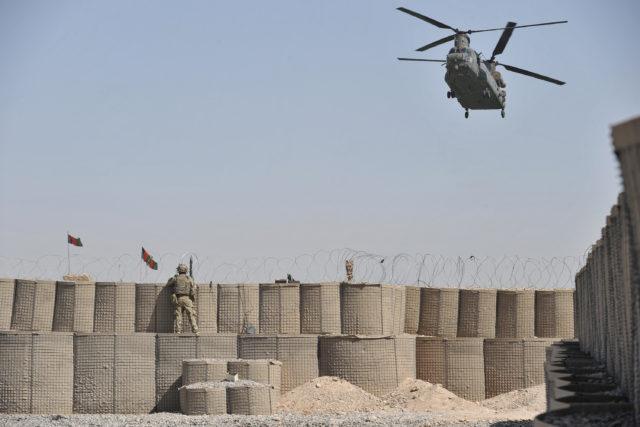
He then ran back down to the base of the hill – a distance of almost 660 feet while being strafed by enemy fire. Although weighed down by his extra equipment, he picked up the second machine gun and scrambled back up while still under constant fire.
Galvanized, his fellow soldiers engaged the Taliban drawing fire away from the hillside. Leakey handed the second machine gun to another soldier and then moved the wounded Marine to a more secure location for evacuation.
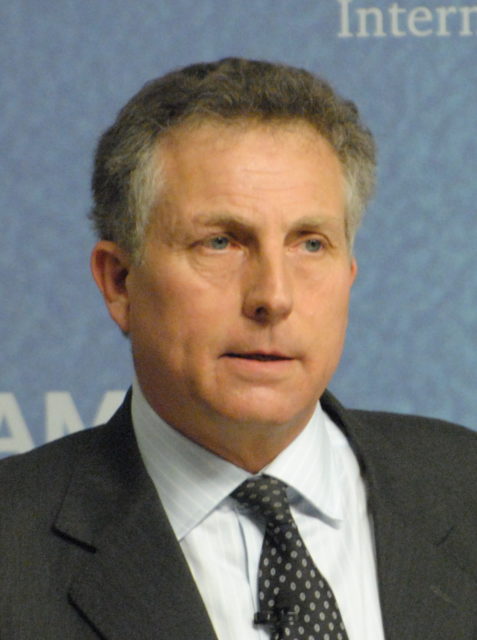
When air support arrived it put a stop to the fighting, which had lasted about 45 minutes. Eleven Taliban were killed and four wounded. Leakey insisted the engagement was a group effort, but he was awarded the VC – the third to receive one for action in Afghanistan.
On April 13, 2015, at Windsor Castle, as Queen Elizabeth awarded Leakey she said, “I don’t get to give this one out very often.”
General Sir Nicholas Patrick Carter (Chief of the General Staff, British Army) did a very un-British thing; he hugged Leakey in front of the cameras.
